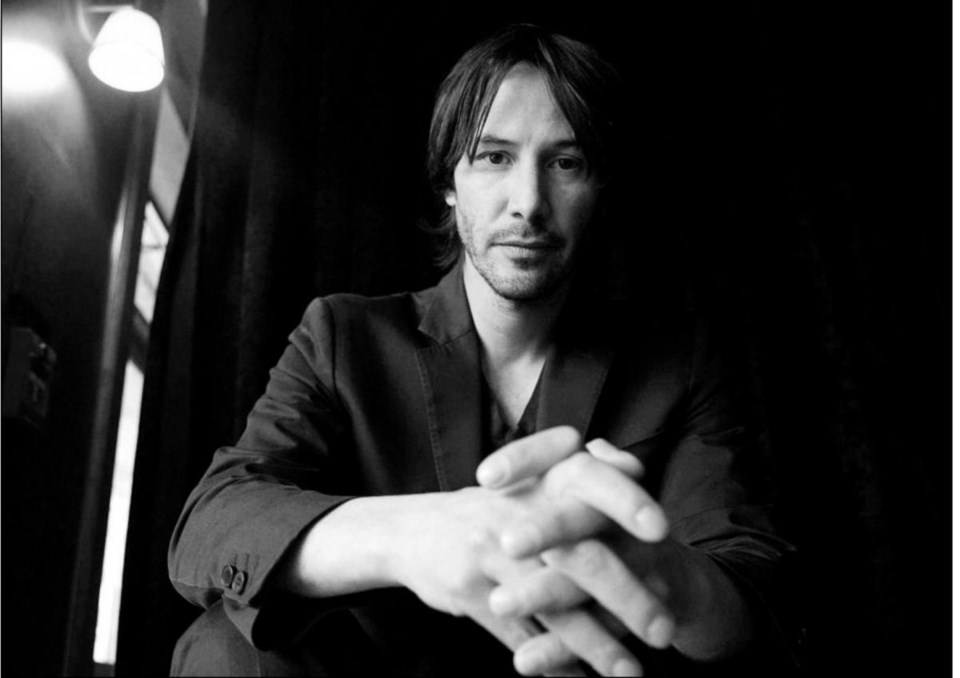The latest film by Keanu Reeves, Side By Side, has no car chases, explosions or slow-motion bullets like those in The Matrix. But for fans of cinema, it has something even more valuable - an inside look at digital technology's impact on traditional film.
The 98-minute documentary is co-produced by Reeves, who also acts as interviewer, and directed by Chris Kenneally and it features a who's who of Hollywood heavyweights discussing their views on making movies through film or digital means.
Filmmakers interviewed include James Cameron, David Fincher, David Lynch, George Lucas, Danny Boyle, Martin Scorsese, Christopher Nolan and Steven Soderbergh
Side By Side opened in Los Angeles on Aug. 17, hits New York Aug. 31 and plays around the United States in weeks to come. It is available nationwide on video-on-demand Wednesday.
Reeves recently spoke to Reuters about the movie.
Q: Where did the idea for Side by Side come from?
A: A couple of years ago I was working on this film, Henry's Crime, which I also produced, and I was talking with Chris Kenneally about all the new digital technology and all the changes in the industry. We were sitting in the post-production suite trying to match the photochemical image with the digital image, side by side, and it just hit me - film is going away, and we should document this whole evolution. So Chris and I gradually put a team together to make the documentary.
Q: The film features interviews with some 70 top filmmakers, directors of photography and other experts. How did you pull all that together?
A: It wasn't easy and it took almost a year to film everyone. We began at the 2010 Camera Image festival in Poland and got a bunch of [cinematographers] there, including all these greats I'd worked with, such as Vittorio Storaro, Michael Chapman and Michael Balhaus.
That was our start, and then word-of-mouth spread, and I began contacting some of the directors I'd worked with over the past 25 years.
So that history together obviously helped get some of the big names on board and we just started building momentum. We ended up getting nearly 150 people and then we had to cut it down for the final movie."
Q: Did anyone turn you down?
A: We got nearly everyone we wanted, although of course some people were unavailable or didn't want to be interviewed, for whatever reason.
Q: Who was the hardest person to get hold of?
A: Chris Nolan, because his schedule on The Dark Knight Rises was so crazy. It took a long time to set that one up.
Q: Nolan's always been an outspoken champion of film as opposed to digital. Is it true you appealed to his anti-digital sentiments by writing him an old-fashioned letter?
A: Yes, I actually wrote to him on an old-fashioned typewriter. I think he got a kick out of that and we finally shot him in his trailer on the Batman set in L.A.
Q: You also managed to get Matrix directors, the Wachowskis. That was quite a coup as they haven't done an interview in over a decade.
A: Well, we've stayed friends since The Matrix films and they were lovely. I felt honoured that they wanted to be a part of this. And I think they add so much to this documentary and may surprise a lot of people with their views.
Although they pioneered so many digital techniques in the Matrix films, they have this big love for film and the look of film.
Q: Any other highlights?
A: Talking to George Lucas was pretty special. The sheer impact that he's had on digital cinema is just so amazing, and I learned so much. I mean, I wasn't familiar with his development of the EditDroid [editing system] which then turned into the Avid but we all know about ILM [Lucas's special effects company] and THX [his movie audio company] and his work with digital cameras. He's a true maverick and pioneer of where we are today. He's done it all.
Q: Having made the documentary, how do you feel about the future of physical film? Is it dead?
A: I think it is. Even Chris Nolan admits that film, if not dead, is now on life support, and it's just going to become more and more difficult to even get film. Personally I'm a big film fan and it's sad to see it go, but the future is digital.
Q: You're also behind the camera again directing your first big feature, a kung fu adventure titled Man of Tai Chi, and shooting it in China. Did you go digital?
A: (Laughs) We did. I developed this project for five years and we're shooting on location in Beijing and Hong Kong. I'm having a great time directing and I definitely plan to do it again.



